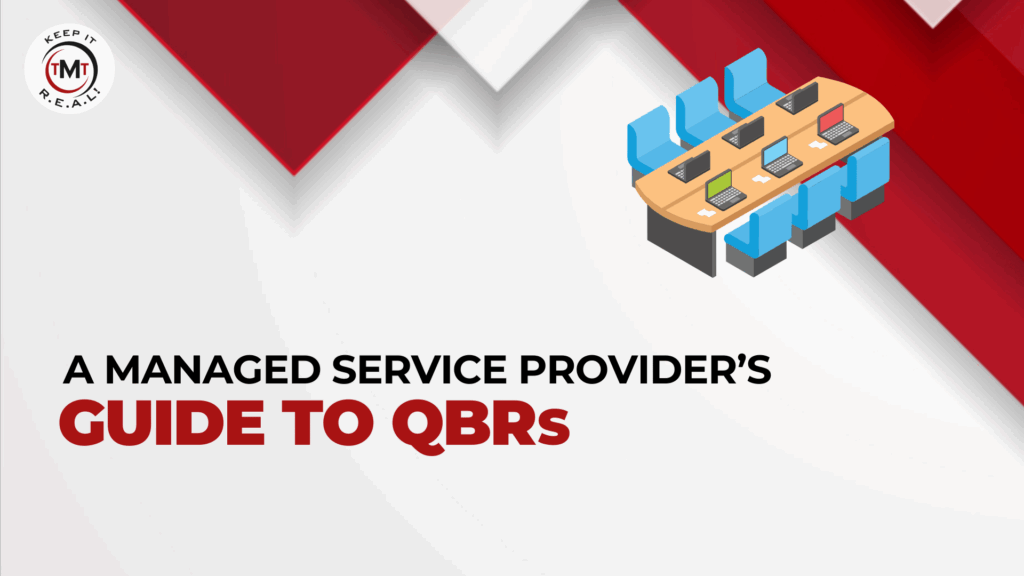It’s crucial for Managed Service Providers (MSPs) to not only protect their clients’ data but also their businesses from the ever-increasing risk of cyber threats. One effective way to mitigate these risks is by investing in cyber insurance. In this article, we will explore the importance of cyber insurance for MSPs, key features of cyber insurance policies, how to choose the right insurance for your MSP, and the role of cyber insurance in risk management. We will also detail the claims process and provide insights on reporting cyber incidents and understanding the claims investigation.
The Importance Of Cyber Insurance For MSPs
As an MSP, you play a critical role in managing your clients’ IT infrastructure and protecting their data. However, even the most advanced security measures cannot guarantee absolute protection against cyber threats. In the unfortunate event of a data breach or cyber attack, the financial and reputational consequences can be devastating for both your business and your clients. This is where cyber insurance becomes vital.
Cyber insurance is a specialized type of insurance that provides protection against losses resulting from cyber attacks, data breaches, and other cyber risks. It not only helps cover the costs associated with managing and recovering from such incidents but also provides financial protection against potential legal liabilities and regulatory penalties.
Defining Cyber Insurance
Cyber insurance is designed to address the unique risks and challenges posed by today’s interconnected digital environment. It typically includes coverage for various aspects, such as:
- First-Party Losses – This includes costs associated with investigating and remediating the cyber incident, notifying affected individuals, providing credit monitoring services, public relations, and business interruption expenses.
- Third-Party Liabilities – This covers legal costs, settlements, and damages arising from lawsuits filed by affected parties due to the cyber incident.
- Regulatory Compliance – Cyber insurance can help cover the expenses of complying with legal and regulatory requirements following a cyber incident.
Why MSPs Need Cyber Insurance
As an MSP, you are responsible for managing a wide range of IT services for your clients. This includes storing and processing their sensitive data, managing their networks and endpoints, and implementing security measures to protect them from cyber threats. However, no matter how robust your security measures may be, there’s always a risk of a potential breach or attack.
When a breach occurs, your clients may hold you accountable for the damages and financial losses they suffer as a result. Cyber insurance provides MSPs with the financial protection needed to address these liabilities and cover the costs of potential legal actions. It also helps protect your business by providing coverage for the expenses associated with managing the fallout of a cyber incident.
Moreover, cyber insurance goes beyond just financial protection. It can also offer valuable resources and support to help you navigate the complex aftermath of a cyber attack. For example, some cyber insurance policies provide access to incident response teams who specialize in handling data breaches and cyber incidents. These experts can guide you through the process of investigating the breach, containing the damage, and implementing measures to prevent future attacks.
Cyber insurance can also enhance your reputation as a trusted MSP. By having cyber insurance in place, you demonstrate to your clients that you take their data security seriously and are prepared to handle any potential risks. This can give them peace of mind and confidence in your ability to protect their valuable information.
It’s important to note that cyber insurance is not a substitute for implementing strong security measures. It should be seen as a complementary tool that helps mitigate the financial and legal risks associated with cyber incidents. By combining robust security practices with cyber insurance coverage, MSPs can create a comprehensive approach to safeguarding their clients’ data and their business interests.
Key Features Of Cyber Insurance
Understanding the key features of cyber insurance policies is essential when selecting the right coverage for your MSP. Here are some important aspects to consider.
Coverage Types In Cyber Insurance
Cyber insurance policies can vary in terms of coverage types. Common coverage options include:
- Data Breach Response – This covers the costs of investigating and managing a data breach, including notifying affected individuals, providing credit monitoring services, and hiring forensic experts.
- Cyber Liability – This provides coverage for third-party claims resulting from a data breach or other cyber incidents. It includes covering legal expenses, settlements, and damages.
- Business Interruption – This covers the loss of income and additional expenses incurred due to a cyber incident that causes a temporary shutdown or disruption to your MSP’s operations.
- Media Liability – This protects against claims of defamation, libel, slander, or copyright infringement arising from online content.
Understanding Policy Limits And Deductibles
When evaluating cyber insurance policies, it’s essential to understand the policy limits and deductibles. Policy limits refer to the maximum amount an insurer will pay for a claim. It’s crucial to ensure that the policy limits align with the potential financial impact of a cyber incident on your MSP. Deductibles, on the other hand, refer to the amount you must pay out of pocket before the insurer starts covering the costs. Consider your MSP’s risk tolerance when selecting the appropriate deductible amount.
Now that we have covered the basic coverage types and policy limits, let’s delve deeper into the intricacies of cyber insurance. One important aspect to consider is the retroactive date. This date determines the coverage for past acts or incidents that occurred before the policy’s inception. It’s crucial to review this date carefully to ensure that any previous cyber incidents are covered.
Additionally, it’s important to understand the exclusions in a cyber insurance policy. Exclusions are specific situations or events that are not covered by the policy. Common exclusions may include intentional acts, war or terrorism, and bodily injury or property damage. Reviewing the exclusions is vital to fully understand the scope of coverage and any potential gaps that may exist.
Another aspect to consider is the reputation and financial stability of the insurance provider. It’s essential to choose a reputable insurer with a strong financial standing to ensure that they can fulfill their obligations in the event of a claim. Researching the insurer’s track record and customer reviews can provide valuable insights into their reliability and customer satisfaction.
Lastly, it’s worth exploring any additional services or resources offered by the insurance provider. Some insurers may offer risk assessment tools, incident response planning assistance, or access to a network of cybersecurity experts. These value-added services can greatly enhance your MSP’s cyber resilience and help mitigate potential risks.
Choosing The Right Cyber Insurance For Your MSP
Choosing the right cyber insurance policy requires a comprehensive assessment of your MSP’s risk profile and diligent evaluation of insurance providers. Here are some factors to consider.
Evaluating Your Risk Profile
Conducting a thorough risk assessment is essential to identify the specific cyber risks your MSP faces. This includes evaluating the types of data you handle, the security measures you have in place, and your vulnerability to potential threats. Understanding your risk profile will help you determine the coverage limits and types of insurance you need to adequately protect your business.
Comparing Insurance Providers
When comparing different cyber insurance providers, consider factors such as coverage options, policy limits, deductibles, premiums, and the reputation and financial strength of the insurer. It may be beneficial to seek recommendations from other MSPs or consult an insurance professional who specializes in cyber insurance. Carefully review the terms and conditions of the policy to ensure it aligns with your specific needs and provides comprehensive coverage.
Another crucial aspect to consider when selecting cyber insurance for your MSP is the claims process. Understanding how the claims process works can save you time and stress in the event of a cyber incident. Look for insurers that offer a streamlined and efficient claims process, with clear guidelines on what to do in case of a data breach or cyber attack. A responsive and supportive claims process can make a significant difference in how quickly your MSP can recover from a cyber incident.
It’s essential to review the exclusions and limitations of the cyber insurance policy. Some policies may have exclusions for certain types of cyber attacks or may impose limits on coverage for specific incidents. Make sure you understand these exclusions and limitations to avoid any surprises when making a claim. Consider customizing your policy to fill any gaps in coverage based on your MSP’s unique risk profile and exposure to cyber threats.
The Role Of Cyber Insurance In Risk Management
While implementing cybersecurity measures is crucial, cyber insurance plays a complementary role in your overall risk management strategy.
How Cyber Insurance Complements Security Measures
Cyber insurance acts as a safety net when preventive security measures fail to completely prevent a cyber incident. It provides financial resources that enable your MSP to effectively respond and recover from the incident. This includes covering the expenses of forensics investigations, legal action, and public relations efforts to restore client trust. By working alongside your security measures, cyber insurance strengthens your ability to navigate the complex landscape of cyber risks.
Mitigating Financial Risks With Cyber Insurance
Cyber incidents can incur significant costs, including legal fees, notification expenses, regulatory penalties, breach remediation, and loss of business. Cyber insurance provides financial protection by helping to manage and mitigate these risks. By transferring some of the potential financial burdens to an insurance provider, your MSP can focus on recovering and minimizing the impact on your clients and business.
Navigating The Claims Process
In the event of a cyber incident, understanding the claims process is essential to ensure a smooth and efficient resolution.
Reporting A Cyber Incident
As soon as a cyber incident occurs, it’s crucial to promptly report it to your insurer according to their specific requirements. Timely reporting helps initiate the claims process and ensures that you adhere to policy terms and conditions. Provide all necessary details and documentation to support your claim and cooperate fully with the insurer’s investigation.
Understanding The Claims Investigation
Insurers typically conduct investigations to assess the validity of a claim, determine the extent of the damages, and gather evidence for potential legal action. Be prepared to provide any requested documentation, cooperate with the investigators, and maintain clear communication throughout the process. Understanding the claims investigation helps streamline the resolution and ensures a fair outcome.
Conclusion
Investing in cyber insurance is a critical step for MSPs to protect their businesses from the financial and reputational risks associated with cyber incidents. By understanding the importance of cyber insurance, and key features of policies, selecting the right coverage, and navigating the claims process, MSPs can enhance their risk management strategies and ensure they are well-equipped to tackle the evolving cyber threat landscape.
Enhancing your risk management with cyber insurance is crucial, but it’s only one part of a comprehensive strategy for business growth. To effectively attract and retain clients, MSPs also need robust marketing strategies. Join Technology Marketing Toolkit’s next FREE MSP Marketing Training to learn cutting-edge marketing techniques and gain the insights and tools necessary to grow your business in a competitive market.







